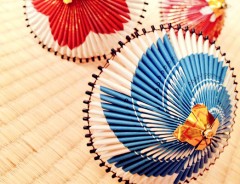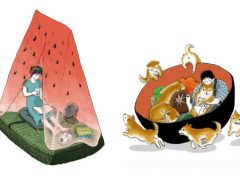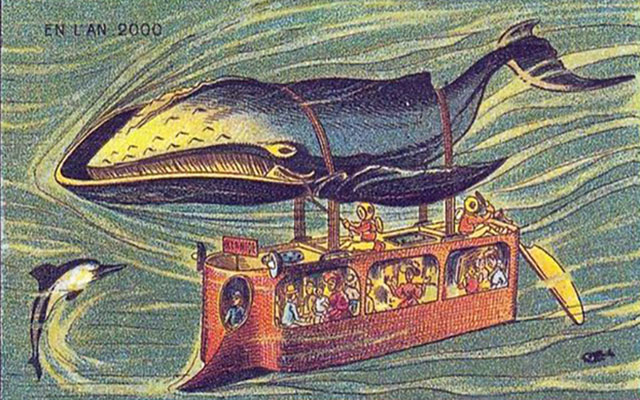- Source:
- Washington Post
Related Article
-

An Award-Winning Japanese Sugar Artist’s Sweet Icing Art Will Melt Your Heart
-

Japanese Grandma Turns Cigarette Boxes Into A Work Of Art
-

Japanese Artist Turns The World Around Us Into Food In Charming Illustrations
-

Mysterious Japanese convenience store “ruins” could be a Studio Ghibli castle
-

Kyoto Just Always Looks Amazing. Gorgeous Photography Explores Japan’s Old Capital And More
-

14 Pepper Robots Singing Beethoven Is A Lot Creepier Than It Was Meant To Be



In your younger years (oh let's be honest, even today!), your image of the future probably included loads of crazy stuff like hover-boards, flying cars, and space travel. Whatever else you fantasized about one day enjoying, we're pretty sure it's safe to say that it didn't include a whale-bus. Strange to say, but that was one image of the year 2000 that was conceived in early 1900's France.
And here's to hoping that we one day get our whale-bus, because it looks totally sweet. Crazy concepts like it and others can be seen in a series of paintings, entitled "France in the Year 2000", that was reported on by The Washington Post. They report that the series was made by Jean-Marc Cote and other French artists in 1899, 1900, 1901, and 1910, and were printed to be included in cigarette and cigar boxes before being eventually turned into postcards.
The series offers us a fascinating look at what people of the past dreamed of being the future. Some come across as wacky, and some are pretty spot-on. Surprisingly, there seems to be a recurring nautical theme in the images. Take a look and see if there's anything you can still hold out hope for!
Source: Washington Post
Source: Washington Post
Source: Washington Post
Source: Washington Post
Source: Washington Post
Source: Washington Post
Source: Washington Post
Source: Washington Post
Source: Washington Post
Source: Washington Post
Source: Washington Post
Source: Washington Post
Source: Washington Post
Source: Washington Post
Source: Washington Post
Source: Washington Post
Source: Washington Post